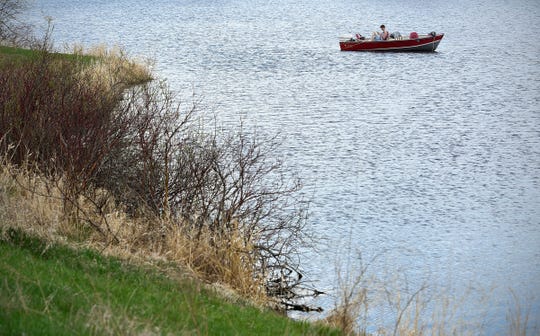Minnesota lake access could be impacted by an Indiana lawsuit
Dec 13, 2018 10:09AM ● By Editor
Photo: lakeplace.com
By Nora G. Hertel of the Saint Cloud Times - December 12, 2018
WASHINGTON D.C. — If you like to recreate on the water or have property on a navigable lake or river in Minnesota, you might want to keep an eye on the U.S. Supreme Court next year.
The nation's highest court is considering whether to take up a case between a property owner and the state of Indiana over a shoreline dispute along Lake Michigan.
If the court does take the case, the justices will decide the line between public and private land on lakeshore properties. Is it the low-water mark — the waterline — or the high-water mark, typically defined by where the beach ends and vegetation begins?
"If the Supreme Court takes it up, it's a pretty big deal," said Susan Dioury, senior vice president of risk management and legal counsel for the Minnesota Association of Realtors.
The association filed a friend of the court brief last month. It asks the court to rule in favor of lakeshore property owners.
But a defender of the Great Lakes calls the case an effort to undo the public trust — common law protection of shared water and other resources.
MORE: Judge orders removal of Grand Lake home
"It's a very aggressive, private-property position that they're taking to undo this incredibly important part of American jurisprudence," said Liz Kirkwood, an attorney and executive director of Michigan-based, Great Lakes advocacy group FLOW (For Love of Water). She said the plaintiffs in the case no longer own the disputed property.

A fisherman casts a line into Little Rock Lake Monday, May 7, near Rice. (Photo: Jason Wachter, [email protected])
The land beneath the Great Lakes and other navigable waters are held "in trust" by the states, according to the Supreme Court of Indiana's February decision on the shoreline case. That means the water is for public use and the government is charged with protecting it for public use.
The public trust doctrine has roots in Roman times and sets certain resources, such as air and sea beds, as "common and shared resources," Kirkwood said.
The Minnesota Association of Realtors weighed in on the lawsuit at the request of the property owner's attorneys in the case, Dioury said. The organization works to stand up for private property rights.
"The Realtors' interest in this case stems from the importance of landowners' rights to lakefront property," states the brief filed with the U.S. Supreme Court. "Minnesota is home to many thousands of lakes and miles of beachfront property."
It's also home to roughly 150 miles of Lake Superior shore, a Great Lake like Lake Michigan.
MORE: 2 Cushing men die when ATV breaks through Fish Trap Lake
In Minnesota, property owners have a right to their shoreline, their beach, up to the low-water mark, which is usually the waterline, Dioury said.
But the Indiana Supreme Court ruled that public-trust land extends to the high-water mark, which opens up part of the beach to public use.
 Buy Photo
Buy PhotoHomes line the shoreline of Little Rock Lake in this 2018 photo. (Photo: Dave Schwarz, [email protected])
If the U.S. Supreme Court takes the case and sides with Indiana, it would theoretically open up more shoreline and beaches for public use, which states could claim and protect.
And so the lawsuit raises an important question, Dioury said. "It's who owns the property between the actual water and where the vegetation starts. Who owns that and how can it be used?"
If the state does claim shoreline as part of the public trust, they must also compensate the property owners, argues the association's brief. "If the public needs additional beachfront land, then the public must acquire such land in the old-fashioned way; it must obtain it by paying just compensation."
If the court doesn't take up the case, each state will continue to set its own precedence for shorelines and the public trust, and not much would change in Minnesota.
That's the outcome Kirkwood would like, she said. "This is a state matter and not a federal, constitutional matter."
The two sides of the case have until early next year to file documents with the court. After that, the court will consider whether to revisit the Indiana Supreme Court's decision.
To see the original article and read related stories, follow this link to the St. Cloud Times website. https://www.sctimes.com/story/news/2018/12/12/minnesota-lake-access-indiana-lawsuit-us-supreme-court...

